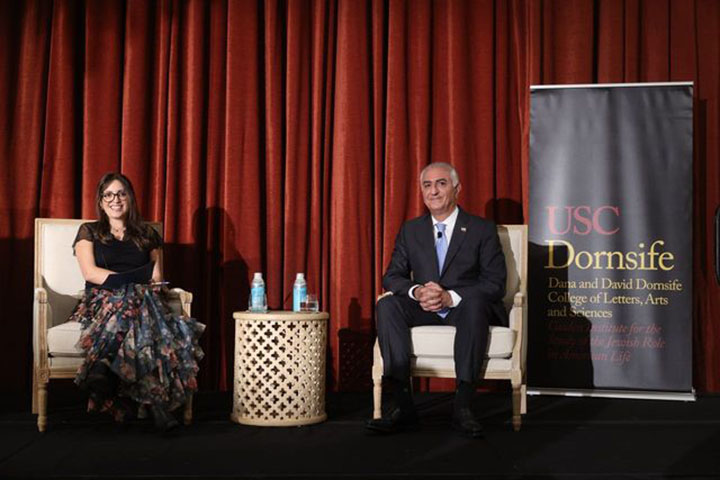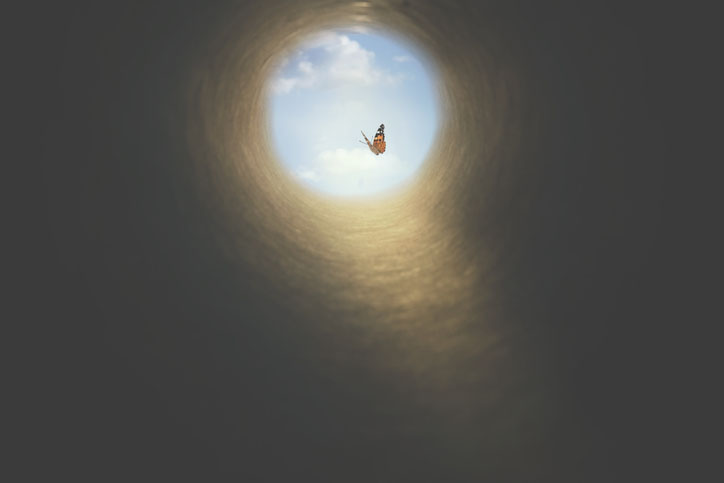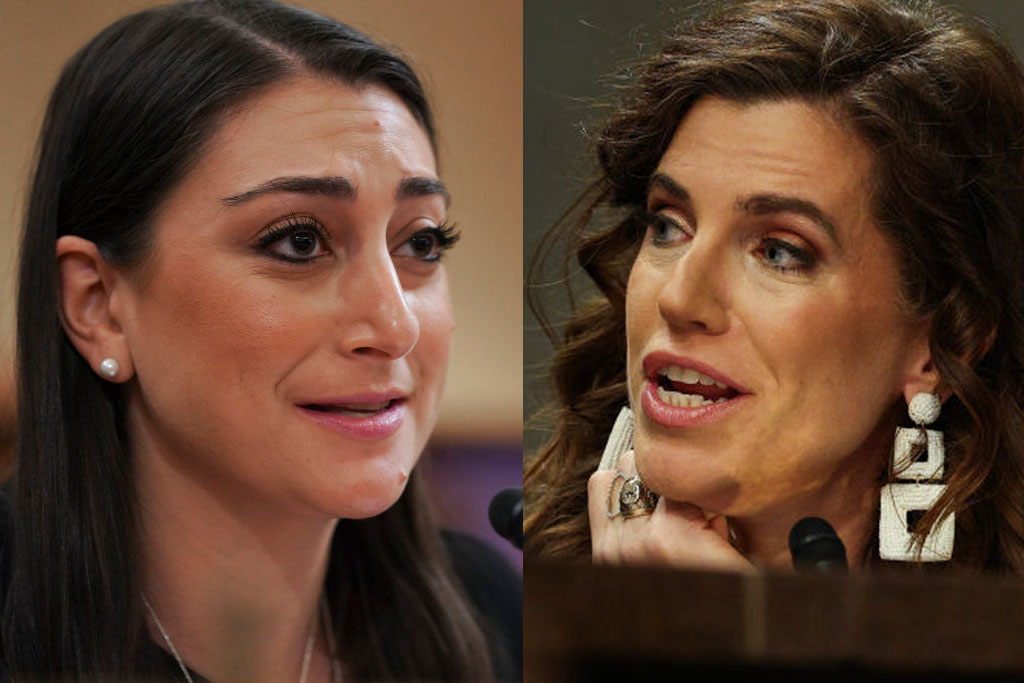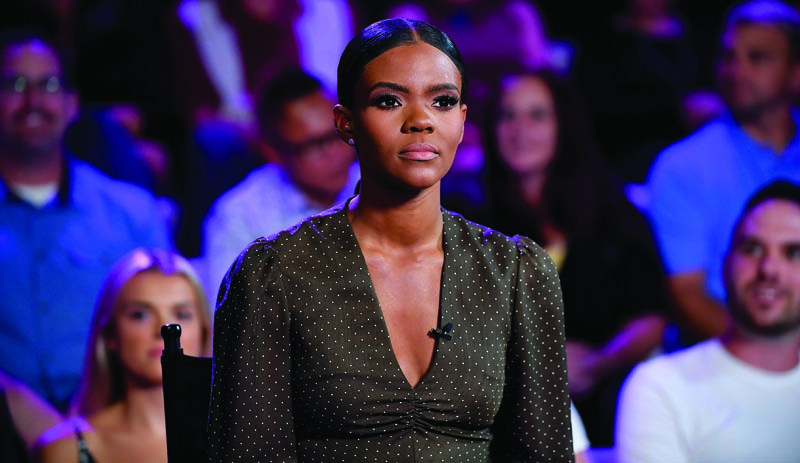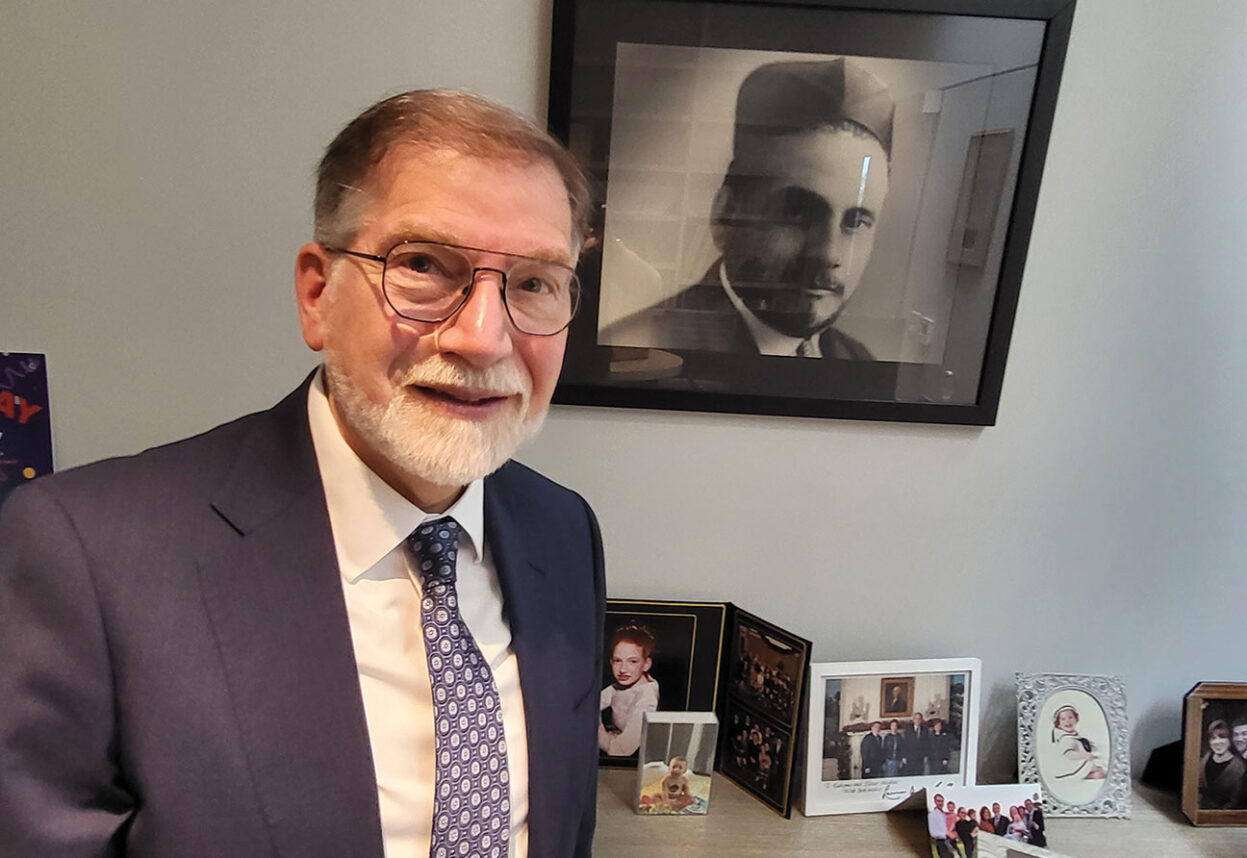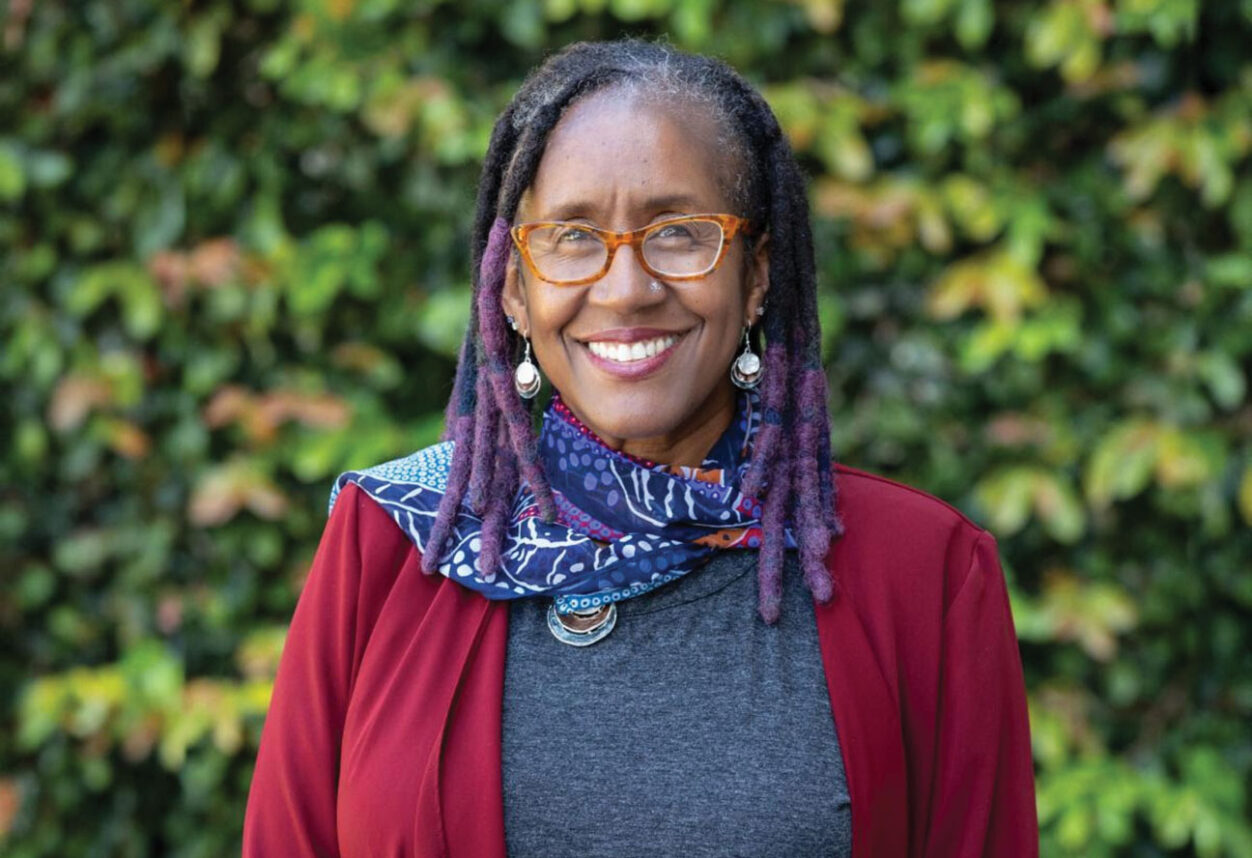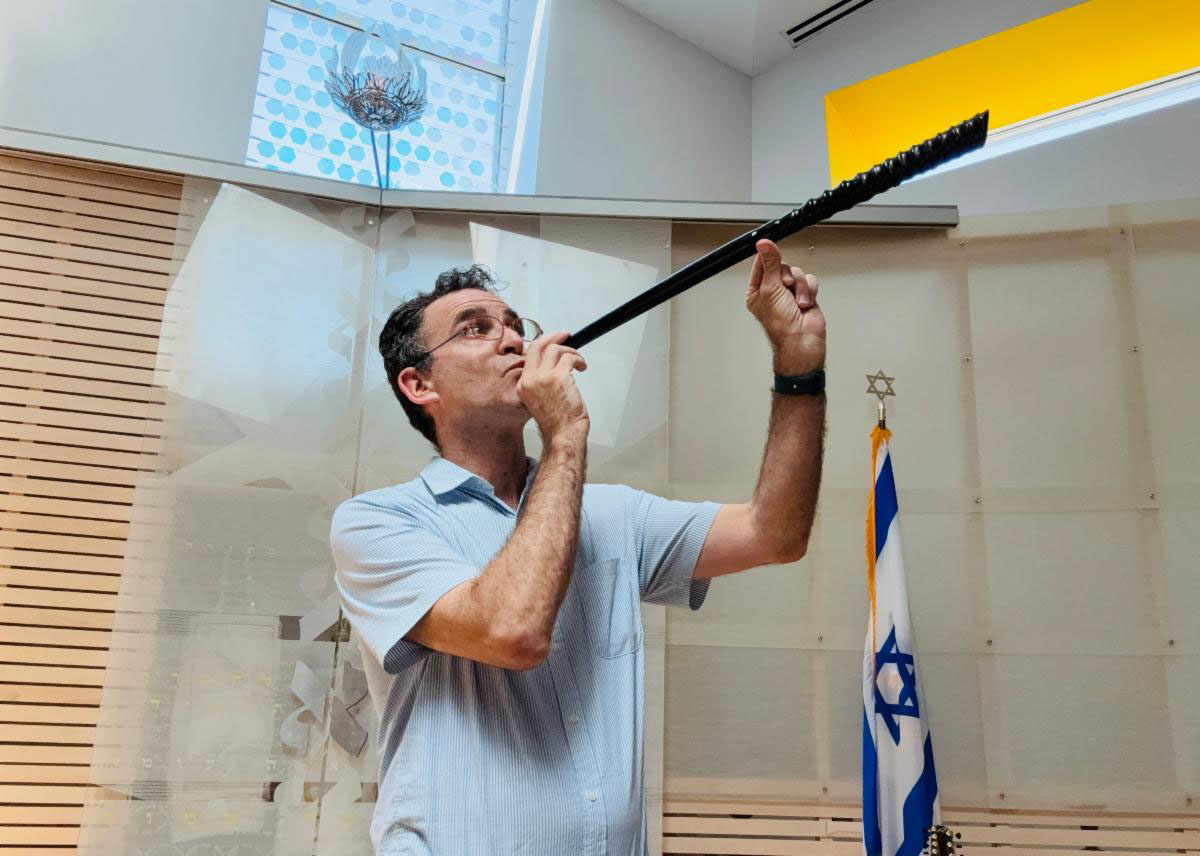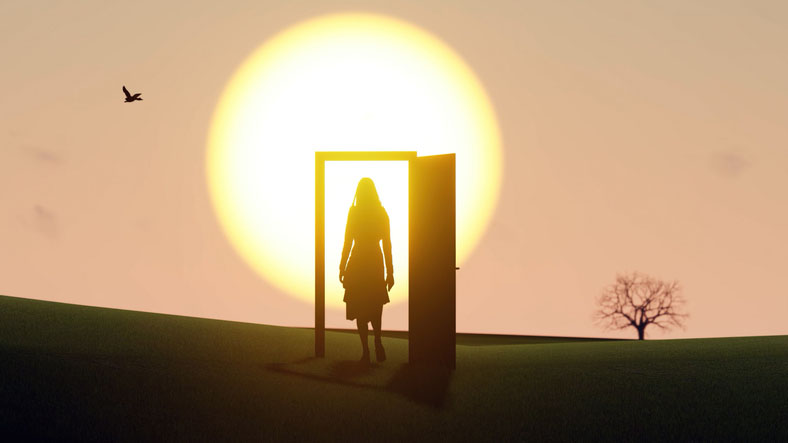Katrina Efforts
Since my return from Mississippi, I have been told that as a community we have done all there is to be done by offering new beginnings to evacuees who have left their homes in New Orleans (“Going in After Katrina,” Sept. 16). We have sent lots of money to the ravaged communities and to charitable organizations, such as the Red Cross, that are engaged in providing first responders. We have sent funds to the Jewish federations in the affected communities. In doing all of that we have discharged our responsibilities, or have we?
Have we truly discharged our duties by sending monies? What about offering to send some of our Hebrew School teachers to take over the classes for the teachers who need to reconstruct their lives? How about offering to restock the libraries of the synagogues, Hebrew schools and Jewish centers that have lost everything? How about encouraging our bar and bat mitzvah students to twin with their peers in the affected communities? How about sending volunteers to help the nursing home residents?
Gila Katz
Executive Director
Klein Chaplaincy Service
Where’s Rabin?
As I entered synagogue last Shabbat morning, several of my friends commented to me on the extensive Page 1 article, complete with color picture, in that morning’s Los Angeles Times on the 10th anniversary of Yitzhak Rabin’s assassination and its implication for Israeli society. Most of us agreed that the Rabin assassination was surely one of the most important moments in Jewish history in our lifetime.
Imagine my surprise when I returned home after services and looked at The Jewish Journal that had arrived. The cover was about the upcoming California elections (Cover, Nov. 4).
I am an avid consumer of much of news available in the general media and look to The Jewish Journal for news on the Jewish world. Increasingly the Journal is not providing that.
Perhaps you should reexamine your editorial policies.
Mara Levy
Santa Monica
Rabbinical Commentary
I would also love to see a haftarah commentary in addition to the Torah commentary (Letters, Nov. 4). However, I do not think having commentary from the three major movements would be beneficial. I like the way that you have different rabbis write the commentaries, and in this way you can give us the perspectives of the different movements.
Thank you for all you do to produce this wonderful newspaper!
Cathy O’Krent
Via e-mail
Making History
Mazel tov to Steven Spielberg and to USC for creating a permanent home for the Shoah Visual History Foundation (“Shoah Foundation Makes USC Its Home,” Oct. 28). Spielberg’s 10 years dedicated to creating a lasting tribute to those who survived the Holocaust will help ensure that the world will never forget. We all share responsibility to play a role in this effort.
To that end, Beth Chayim Chadashim (www.bcc-la.org) is proud to host a communitywide commemoration of Kristallnacht, the infamous Nights of Broken Glass, precursor of the Shoah. We will honor Holocaust survivor Olga Grilli, born in Chotebor, Czechoslovakia, who gave her testimony to the Shoah Foundation several years ago. Grilli was rescued on a Kindertransport at age 11 and survived the war in England, ultimately immigrating to the United States.
Our discovery of that testimony at the Shoah Foundation set in motion a series of events that will culminate Friday, Nov. 11, in reuniting Grilli with a Torah scroll from her hometown — a Torah that her uncle and grandfather once held.
We are grateful to Spielberg, the Shoah Foundation and USC for preserving and helping us to bring to life this important part of Jewish and world history.
Rabbi Lisa Edwards
Beth Chayim Chadashim
Stephen Sass
Sylvia Sukop
Event co-chairs
Shul Attraction
David Suissa’s opinion piece, suggesting that cantors surprise congregants by mixing up melodies is a wonderful idea and, though not new, is a suggestion that I, and no doubt most my colleagues, have been doing week in and week out, for many years (“A Surprise Might Attract More to Shuls,” Nov. 4). There are two questions, however, that I would ask regarding this suggestion: a) is this what our members want and b) would this, in fact, draw more people to synagogue?
The answer to the first question is maybe. In a recent survey of my congregation, over half the respondents stated that they prefer when the chazzan, “sings the traditional melodies.” While what is traditional for one Jew is not necessarily traditional for another, clearly when people do come to synagogue, they like to participate in the liturgy, singing a prayer to a musical setting to which they are familiar.
The second question is one that cannot be answered in one Jewish Journal article, or even 100. Suissa is correct — liberal synagogues today compete with Starbucks to attract attendees. We also compete with soccer games, a sale at the mall and general Jewish apathy. Some Jews are attracted to synagogues that offer a niche service on a monthly basis; no doubt participation at these services would drop precipitously if they occurred each and every Shabbat.
When the celebration of Shabbat on a weekly basis becomes a priority for members of the non-Orthodox Jewish community (the community to which I proudly belong) the struggle to attract more people to synagogue will finally conclude.
Chazzan Keith Miller
Kehillat Ma’arav-The Westside Congregation
Santa Monica
Still Smarting
Don’t despair, Amy (“Still Smarting,” Nov. 4). There are men, such as myself, who prefer strong, intelligent women.
David Wincelberg
Beverly Hills
Still Silent
I, too, lament the changes on Fairfax Avenue (“Fairfax Shops Feel the Squeeze,” Oct. 21). But I’ve heard nothing about the famed Silent Movie Theatre, as prominent a landmark on Fairfax Avenue since 1942 as Canter’s and the Farmers Market, and the only theater of its kind in America!
Eddie Cress
Sylmar
Wrong Conclusion
I fail to see the logical link in Leonard Fein’s “Rosa Parks’ Message for Today” (Nov. 4). Parks and Southern blacks of her time faced massive injustice of all types based on racist laws and customs. From this undeniable fact Fein jumps to the “persistent, grinding poverty that still exists in our country….” Is he suggesting that poverty is state sanctioned, or that “ignoring” poverty is the same as the official discrimination, the lynchings, denial of education, segregation and disenfranchisement that were characteristic of the pre-civil rights era?
Chaim Sisman
Los Angeles
Too Far Left?
I was just wondering if you ever got tired of (or actually, had even noticed) that reading The Jewish Journal is like reading the talking points of the Democratic National Committee. You and others who write in these pages are always lamenting the low affiliation rates among American Jews and are brainstorming about how to increase it. I’d like to suggest you consider taking the politics out of Judaism.
It is a fundamental reality of modern American Jewish life that becoming involved in any Jewish organization is tantamount to joining the left-wing of the Democrat Party. I challenge anyone who seriously disagrees with this statement to come up with even one issue on which any major Jewish organization and the Democrat Party disagree. Furthermore, the vast majority of liberal Jews who are actually proud of these positions (of which, I freely concede, there are many) are, at heart, secular humanists, who truly believe religion is the opiate of the masses and that it is the root of much evil in the world. It should not surprise anyone that recruiting people from this group to join religious organizations is difficult at best. Judaism does not equal the Democrat Party, and I’d like to provide two brief examples to illustrate my point.
1) Tzedakah. While we can all agree that tzedakah is a prime Jewish value, everyone reading this letter should be aware that Maimonides elucidated eight levels of tzedakah. The lowest form is a handout (welfare, food stamps) while the highest form is teaching someone a trade so that they don’t need tzedakah. This approach is exemplified by (Women’s American) ORT, which raises money to build schools to teach people a trade.
2) Abortion. The halacha is clear that abortion is permissible to save the life or health of the mother. A valid halachic argument can even be made that psychological distress counts as harm. But how in the heck did we get from the halacha to being against parental notification when a minor child wants an abortion? I would like to suggest that the entire point of knowing that a minor child is having high-risk unprotected sex is precisely so that the grown-ups can intervene and change the behavior, not keep it secret. The tiresome argument about rape or incest is a red herring; I am a practicing pediatrician who has to deal with far-too-many teen and preteen pregnancies (and sexually transmitted diseases), and I can literally count on one hand the number of times rape or incest were involved. Besides, if we even suspect the minor is being abused or will be abused, we immediately notify the police and the Department of Child and Family Services who intervene and, in loco parentis, represent and protect the child.
In conclusion, perhaps if Jewish clergy and Jewish organizations returned to teaching Jewish values and left how best to live those values in daily life up to individual Jews, perhaps you’d see an increase in affiliation rates and in your paper’s circulation.
Dr. Rabbi Andrew L. Teperson
Palmdale








